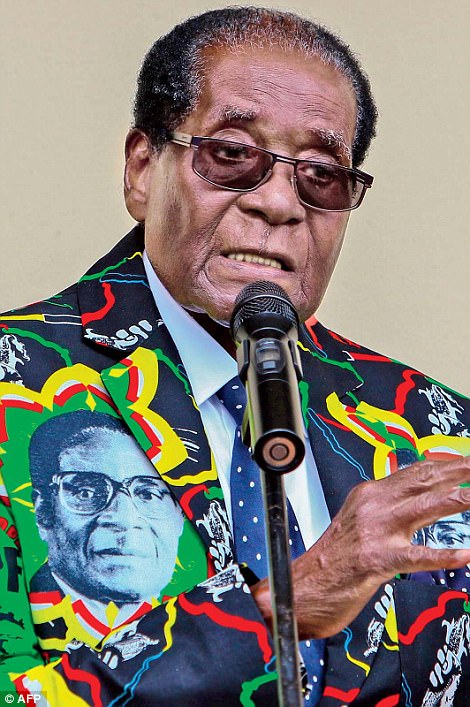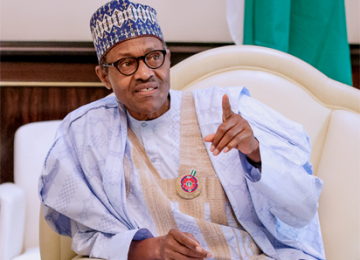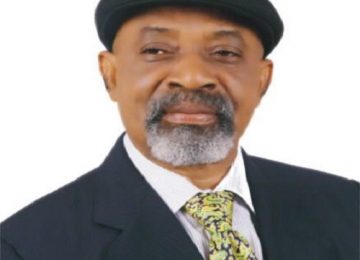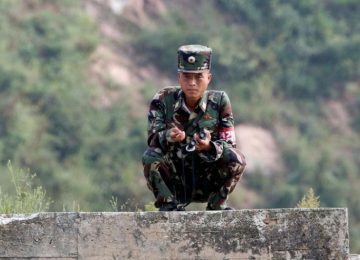The National Movement for Positive Change (NMPC) has described the eventual end of former Zimbabwean President, Robert Mugabe as a lesson for African leaders, urging them to do away with personal agenda and pursue mass oriented policy that will liberate their citizens.
This was disclosed by the Spokesperson of the group, Dr Wilson Ochoroghene V. Ijide, in a statement issued while the military intervention that eventually paved way for the resignation of the former dictator lasted in the South African country.
According to Ijide, “NMPC observes that paradoxically, the belief in democracy as capable of policing itself has been largely perverted in many African states, hence the Zimbabwean style military intervention has not received wide condemnation. The attitude of the United Kingdom and the United States is at the best that of expectations that the exit of Mugabe becomes a reality, the very purpose for which crippling sanction was earlier imposed on the regime.”
He further noted that “the image of a messiah became the intoxicating liquor that tended to undermine any sense of proportion and decorum in Mugabes’s understanding of democracy as a form of government, hence he epitomizes the mentality of many African leaders to hold on to power in perpetuity. This resulted in his holding unto power as president of Zimbabwe for the past 37 years in what was an obvious aberration to the inventors and custodians of democracy. It was never in the contemplation of the advocates of democratic values and norms that a democratically elected president would be in the saddle for as long as the period which many African states have and tend to hold unto power.”
The full statement:
The National Movement for Positive Change (NMPC), primarily a body committed to positive change in Nigeria sees a close connection between the recent military intervention in Zimbabwe with the general political trend on the African continent. Political instability in Africa is no doubt a source of worry not just to citizens of African states but to all peace loving nations throughout the World. The connection between political instability and underdevelopment, unemployment, poverty and violent conflicts has continued to reduce African sates to the wretched of the earth. The consequences of instability in Africa are felt in Europe and America as underscored by Africa migrant crisis in the Mediterranean; the widespread avoidable suffering of African citizens in search for a better life outside the continent speaks to the need for the African elite to constantly interrogate the leadership and followership mentalities that have reduced them to this sorry state.
MUGABE’S AS A MESIAH AND VILIAN
NMPC observes that Robert Mugabe means different things to different people depending on whether one is on the side the white or black Zimbabweans. Many blacks Zimbabweans see Mugabe as a hero who saw to their liberation from the white supremacist regime of the pre-colonial era. He restored the dignity of the black man at least psychologically, by ensuring the restoration of their lands which was deviously, and cruelly wrested from them by their civilized colonial masters. The perception of Africa as not capable of mastering their own density became the ideological niche around which Zimbabweans were subjugated and from which only a messiah in the mold of Mugabe was to deliver them.
NMPC is of the view that the image of a messiah became the intoxicating liquor that tended to undermine any sense of proportion and decorum in Mugabes’s understanding of democracy as a form of government, hence he epitomizes the mentality of many African leaders to hold on to power in perpetuity. This resulted in his holding unto power as president of Zimbabwe for the past 37 years in what was an obvious aberration to the inventors and custodians of democracy. It was never in the contemplation of the advocates of democratic values and norms that a democratically elected president would be in the saddle for as long as the period which many African states have and tend to hold unto power.
NMPC believes that Robert Mugabe was bound to face serious opposition from those whose illegally acquired lands were revoked and redistributed to black Zimbabweans. That opposition came in form of an orchestrated political warfare amidst a failing economy. President Mugabe however continued to undermine these powerful external forces and internal contradictions in the form of biting poverty and unemployment that could bring his regime to the precipice. Imposed economic sanctions by the West amidst allegations of high handedness and lack of tolerance for the opposition in Zimbabwe made the regime of Mugabe to be quite vulnerable to a civil revolution or military intervention. The capacity of the citizens to tolerate dictatorship makes it more likely that the later would be the only way out for Zimbabwe despite the fact that military interventions have continued to be regarded as aberration in politics.
NMPC observes that paradoxically, the belief in democracy as capable of policing itself has been largely perverted in many African states, hence the Zimbabwean style military intervention has not received wide condemnation. The attitude of the United Kingdom and the United States is at the best that of expectations that the exit of Mugabe becomes a reality, the very purpose for which crippling sanction was earlier imposed on the regime.
NMPC nevertheless, holds that the well accepted principles of democracy remains the guiding light to Africa’s emancipation.
WAY FORWARD FOR ZIMBABWE
NMPC is of the view that the mental state of Robert Mugabe is presently suspect for him to continue to be president of that country. The military in Zimbabwe should do the needful by appointing an interim government that would pave way for return of constitutional government.
NMPC further urges AU to take a visionary stand on the situation in Zimbabwe if it had not done so.
LESSONS FOR OTHER AFRICAN STATES
Robert Mugabe proved that power corrupts and absolute power corrupts absolutely. He validated another popular African adage that a stubborn fly follows the corpse to the grave. Mugabe bestrode Zimbabwe like a colossus, he was articulate, eloquent, courageous and tenacious. He became deluded with the idea that he was invulnerable as it is typical of every dictator. His time came like a necessary end that must come when it will. Many Zimbabweans believed that no other Zimbabwean man or woman can rule the country despite the fact that no individual can live forever; hence many citizens in African states including some of the elites, continue to be persuaded erroneously, that the problems of their country can only be solved by one individual to whom they are ready to surrender their destiny. Mugabe exemplified the image of such a demagogue which is common place in Africa’s political reality.
The removal of Mugabe as President of Zimbabwe should serve as a reminder to his likes and their loyalists that a country is bigger than an individual. Loyalty should be to the state and not individuals. African leaders must learn to quit the stage in line with democratic tenets. African citizens particularly the elites must avoid the clamour and support for dictators no matter the temptations to do so. Citizens must instead, try to understand the philosophical and ideological underpinning that makes democracy the preferred form of government among plausible alternatives.
CONCLUSION
NMPC believes that the model of change in Zimbabwe calls for a modified concept of civil military relations that could accommodate benevolent military intervention in situations that call for it, where democratically elected governments try to use all forms of political maneuvers and tactics to subvert the will of the people.






